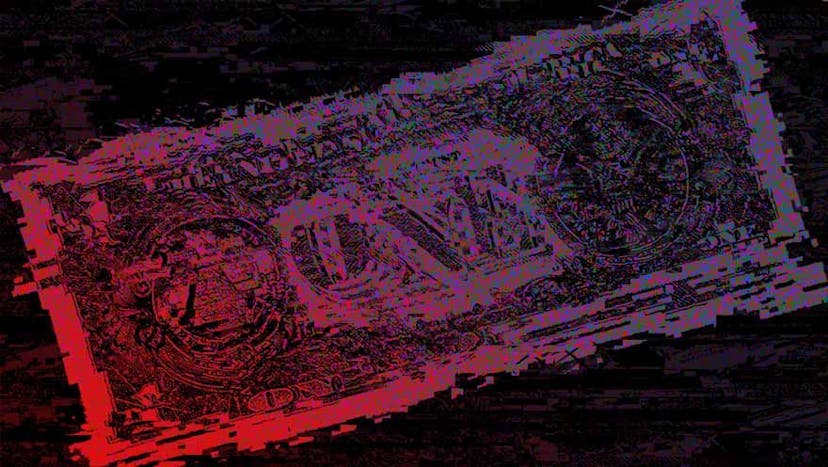Puncturing the Hype About Illicit Finance in Crypto
Data Shows TradFi Remains the Channel of Choice for Dirty Money
By: Alex Shipp • Loading...
Research & Opinion
From the BBC to Reuters, the world’s leading mainstream media outlets steadily deliver provocative headlines implicating cryptocurrencies as primary facilitators of illicit activity. The edgy, sensationalized narratives would appear to warrant universal, uncompromising surveillance of all public citizens that engage decentralized systems built on blockchain, but the hard numbers tell a very different story.
According to Chainalysis’ 2022 Crypto Crime Report, transactions involving illicit addresses accounted for only 0.15% of total cryptocurrency volume in 2021, with some competitors’ estimates falling as low as 0.10%.
Ever Diminishing Slice
The figure represents yet another major decline as part of a multi-year down-trend from 0.6% in 2020, and a whopping 3.4% in 2019. Indisputably, illicit addresses constitute an ever-diminishing slice of the crypto pie.
For a modern news cycle that is starved for a feel-good headline, it’s worth acknowledging that in the last three years, cryptocurrency’s growth and evolution has been primarily directed toward emergent mainstream use cases.
The Comfort Zone: Where Bad Actors (Actually) Operate
As for the bad actors themselves, a light investigation of the facts and figures is all that’s needed to discern why they remain warm and cozy confining their operations to legacy financial systems.
As much as 99.9% of fiat-denominated money-laundering goes unprosecuted, said Kathryn Haun, the founder of Haun Ventures and a former federal prosecutor, in 2019. Haun, whocreated the U.S. government’s first cryptocurrency task force and led investigations on corrupt agents in the Silk Road task force and Mt. Gox hack, said: “I testified before the U.S. Senate about this…And I thought that can’t be right. But I researched it and indeed it’s true.”
As long as conditions enable money launderers in the TradFi domain, bad actors are unlikely to attempt a risky migration to crypto any time soon.
On that front, mainstream news outlets have provided a near-constant stream of launderers’ cat-and-mouse skirmishes with public authorities.
In February 2022 Credit Suisse faced charges of nearly $46M for facilitating money laundering on behalf of a Bulgarian cocaine trafficking gang – largely by stuffing euro bills into suitcases.
Right behind their Swiss counterparts, HSBC was fined £64M by the United Kingdom’s Financial Conduct Authority (FCA) in 2021 for failing to prevent money laundering operations between 2010 and 2018. The fine came on the heels of a $1.9B fine HSBC paid out to United States regulators in 2012 for providing money laundering services totaling more than $881 million USD to notorious drug cartels across Latin America. (HSBC said is it “deeply committed” to combating financial crime, according to the report in the BBC).
The Bigger Picture for On-Chain Privacy
The alarmist narrative linking cryptocurrency protocols to bad actors ignores all quantitative metrics which might construct an accurate bigger picture for their public audiences. Since time immemorial, authorities have relied on amplifying threats and proliferating fear to justify the expansion of their powers.
The authorities’ 21st century encroachment into distributed virtual networks merely marks their next move. Those formulating the narrative have an agenda of their own: a technocratic surveillance state powered by AI and social credit scores that extinguishes individual privacy — and ultimately, individuality altogether.
Harmony Hacked, Yuga Strikes, Blockfi on the Rocks

Harmony Hacked, Yuga Strikes, Blockfi on the Rocks
Yes, we’re back from New York City and back into the grind of a market that has recovered a smidge of its dignity, total cryptocurrency market cap poking its head back above a trillion once again. For how long, well we’ll have to see. And with no prospect of the Fed easing off on rate…
None has issued more eloquent nor harrowing warnings of privacy’s impending extermination than Edward Snowden, who spoke to the threat of on-chain surveillance technologies in his most recent cryptocurrency interview on Offshift Fireside Chats:
“We all know the phrase ‘the private citizen’, and we all know the phrase ‘the public official’, but why is it that we don’t know what public officials are doing? But for the private citizen, we are increasingly scrutinized, tracked, quantified, and measured; we are nudged, we are manipulated…we have inverted the traditional model of how we protect society from power.”
Powerful Authorities
For better or worse, on-chain data analytics companies have now established themselves as some of the blockchain space’s most sophisticated and capable organizations. Therefore, any system which espouses the prerogative of individual liberty must provide users both decentralized architecture and robust protections for privacy.
Otherwise, our future will be one owned and directed by powerful authorities, rather than the individuals they were ordained to serve and protect.
Alex Shipp the Chief Strategy Officer of Offshift, a PriFi (private DeFi) derivatives platform.
Advertisement
Get the best of The Defiant directly in your inbox 💌
Know what matters in Web3 with The Defiant Daily newsletter, every weekday
90k+ investors informed every day. Unsubscribe anytime.